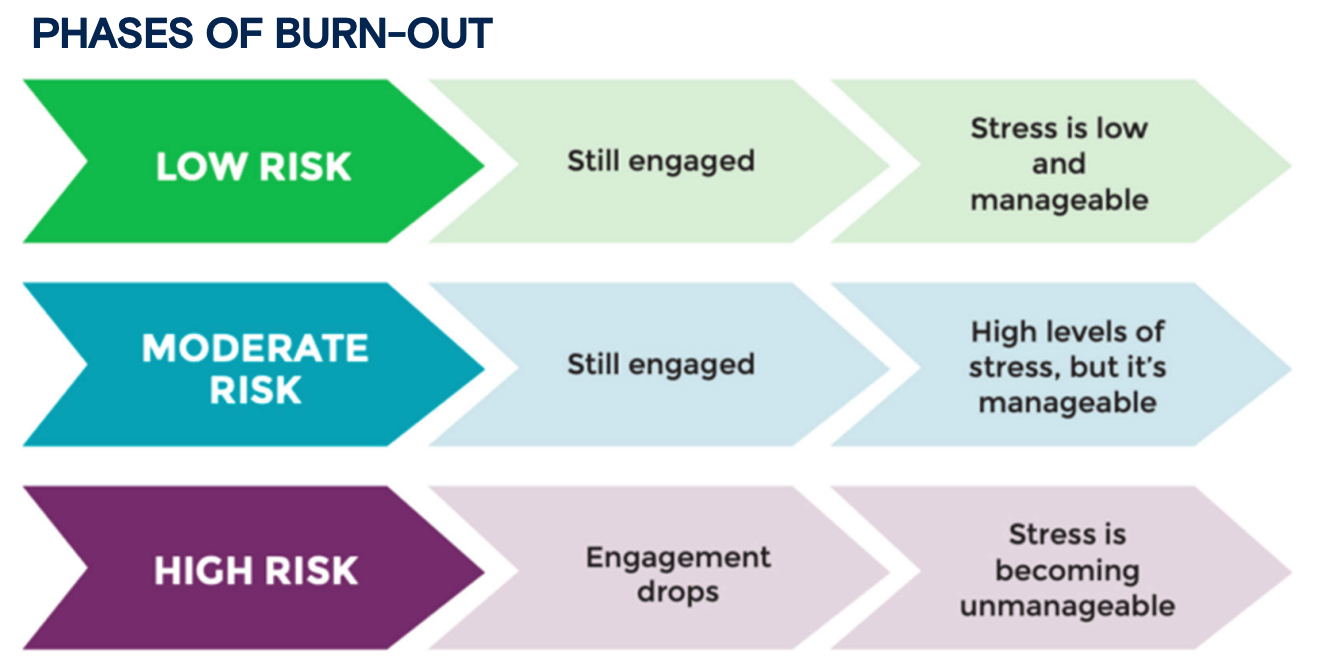Although being on a board can be an exhilarating experience, much like all working environments, it’s not unusual to encounter unpleasant situations. If you’ve been a board member for an extensive amount of time, there’s a good chance that some difficulties and challenges have arisen. It could be several situations, ranging from feeling burnt out to dealing with someone on the board who is objectionable. This BoardPro article aims to provide you with some insight on how to deal with such situations that align with your board and organisation culture.
Taking an unpopular stand as a board member
It is inevitable that disagreements will occur during board meetings and boardroom processes. In fact, disagreements are encouraged because, with the right amount, this enables for new ideas to be formed and innovative thinking to arise, which is an essential part of change and decision-making. However, if disagreements aren’t appropriately managed, there is also a chance for board members to feel unheard or insignificant.
Know that is is OK
It is perfectly normal for disagreements to happen sometimes. It is about being proactive and diplomatic in presenting ideas and the thought processes behind them. A board is typically comprised of diverse individuals selected to cover a large array of skills, knowledge, perspectives and networks. Therefore, there will be different opinions.
Speak Up
Although avoidance and silence may seem like the best and easiest options, these behaviours, should really be avoided. Silence could do more harm than good. Every board member’s opinion should be considered and respected, and even though one might be different, it should not be discredited. In fact, different opinions open up new opportunities and ways to problem-solve.
Respect and be respected
Although it may seem difficult to speak up, and having another opinion might cause you to feel out of line, all opinions should be respected. Control thoughts and emotions and present arguments with grace and empathy. Be aware that board members will always have different opinions, and opinions can change. A board member who holds the minority in opinion could easily hold the majority on another topic.
Be thorough
Meeting preparations should be conducted. For example, using the help of a visual or statistical aid could help persuade other board members of a new personal opinion. With factual backing, opinions will consolidate, and this can make it much easier to convince the rest of the board members, that your point is worth considering.
Use emotional intelligence
Knowing when it is the right time to say the correct thing is crucial when presenting a point. It is essential to understand the mood of the room. When presenting a personal opinion, it ‘s vital that you avoid coming across as too pushy or demanding to obtain the best results from other board members.
Avoiding boardroom burnout

Burn-out is a prolonged state of physical, emotional and mental stress that causes a person to feel incapable of functioning at their standard capacity. A board member’s burn-out is not only bad for that member but also for the board as a whole. Studies have shown that both for-profit and non-profit directors can quickly feel the stresses of the job because of the company’s increased reliance on them.
Do set boundaries
Being realistic about the job at hand and not ‘biting off more than you can chew’ will help with board burn-out. There are only so many hours in the day and so many tasks that can be accomplished within that time. If the workload is indeed too much to handle, it is recommended that you consider changing to a less demanding role rather than leaving the organisation altogether.
Do organise what will be shared during board meetings
Similar to the previous point above, there is really only so much time in which to complete so many things. Time management is essential when it comes to board meetings. It’s up to you to plan ahead of time what needs to be said and done during meetings. It is recommended that set aside some time, say two days a week, to plan the meeting and to read the latest board pack in sections rather than do this all at once. That way, there would be less of a chance of missing anything, and points can be more easily digested.
Do build relationships with the team
Getting to know the other board members can greatly ease the additional stresses of the workload. Connecting with like-minded members allows for freedom and comfort when sharing opinions. Also, getting to know the other members can help you to gauge interest and connections for future growth. Organising lunches outside the boardroom, whether in a group or one-to-one, can help kick things off.
Do Disconnect when possible
Much like setting boundaries, it is imperative that you take a moment to step away from board-related responsibilities. However, being committed to the organisation doesn’t mean that every waking moment should be spent connected with the cause of the board.
Dealing with an unpleasant board member
A board should be composed of a diversity of members of different talents and visions. Therefore, it’s no surprise that some members might not communicate in a suitable way for the comfort of all other board members.
It is normal to have certain disagreements during discussions, and this should not be seen as bullying. Such conversations should be pleasant and diplomatic. However, some members might really be downright unpleasant and may work with the vision for their own benefit. Manipulations and intimidations are unfortunately unavoidable in some cases, and can cause ill feelings. Handling these types of situations is important for the ease and comfort of all board members, and there are ways of managing these challenges.
1. Bringing light to the unpleasant behaviour
Calling out the bad behaviour may be the easiest way to go about tackling unpleasant situations caused by another board member. It is important to approach the behaviour in a way that would not be seen as bullying back, but as diverting and standing up for yourself and others. For example, if the unpleasant board member constantly talks above others, a viable strategy woiuld be to politely interrupt and ask the original speaker to continue talking. In this way, it would be seen as respectful and inoffensive to anyone, all while supporting the other board members.
2. Refuting the situation to the chairperson
If the situation continues, it could be useful to talk to the chairperson in a private space. Bringing the matter to light and mentioning how the unpleasant behaviour affects the team would encourage the chairperson to take a firmer hand during meetings. Certain ground rules can also be brainstormed and set in order to discourage interruptions and ensure a smooth, stress-free exchange of information and ideas. Once the situation is shared, it would be up to the chairperson to move forwards to control it and reach out to the director in question to find a solution.
3. Working together to achieve a more pleasant environment
Although it is important to remain professional, a conversation is bound to arise about the unpleasant board member. Knowing who is affected by the board member and knowing who is an ally can help with resolving the situation. Discussing ways to work together to achieve a more pleasant and considerate environment would be a great step. Remaining professional means that solutions need to be progressive without being seen as ‘bullying.’ One board member could call out an unpleasant behaviours; however, if more members do, it is likely that the situation can be resolved faster.
Board Resignation
Unusually, being part of a board is a temporary role and not a lifelong commitment. It is important to stress that there isn’t a correct or incorrect length of time to serve on a board. What feels right to each individual is more likely to yield more efficient and committed work. Sometimes there are internal and external reasons which would signal you to consider resigning from the role.
1. Not having the time or energy
Serving on a board comes with responsibilities, and a competent board member is aware of the realities of the job and the subsequent workload. You should be considerate when deciding on whether or not to serve another term. It is much more respected to know your own personal limits on delivering quality work rather than to undermine quality due to personal lack of time or energy.
2. Disagreeing with major operational decisions
Regardless of natural disagreements in the boardroom, there should be an alignment between the organisation and the individual board member. Although it is important to be aware that disagreements are normal in the boardroom, division isn’t normal.
3. Feeling burnt out
As explained above, feeling burnt out can leave an individual feeling overwhelmed, stressed, and unmotivated. Board work can be challenging, and it is important to know your personal limits. Honouring personal boundaries and being honest with yourself and other board members might be the best way to move on. It is also suggested to provide feedback to the organisation about workload and board member attitudes to help others avoid feeling the same level of exhaustion.
Is there a right way to resign as a board member?
Resigning from a board might be a difficult decision and experience. However, it is important to note that clear, honest communication is crucial. Being diplomatic, graceful and aware of surrounding emotions would greatly aid in communicating your plan to leave the board.
1. Completion of board term
The ideal situation would be to resign on completing a board term. However, it is essential to be considerate to the board on resignation so as not to leave a sudden void to be filled. Check the organisation’s bylaws to follow any requirements and protocols. It could be beneficial to all parties involved to be upfront and honest about the reasons for your departure. Many board members will likely appreciate your honesty, and many will most probably relate and show support.
2. The middle of a term?
Occasionally, something unexpected can happen that could cause the need for departure in the middle of a term. This could be due to internal or external factors abd it might orive wise/helpful to be open and honest about the reason in such a situation. It is important to give the board prior notice to allow them to find a replacement. Generally, the notice would be 60 days, keeping in mind that a departure causes work for other board members. So, ensure you keep that in mind and help fulfil your remaining duties as best as possible. Once again, approaching the situation with grace, honesty and open communication is the best policy.
If you're looking for a tool to streamline your Board processes, check out BoardPro - an all-in-one software solution designed specifically for Boards and busy CEOs!
Schedule a demo with our team today and begin to experience a whole new way of meeting.
Share this
You May Also Like
These Related Stories

7 Ways to Fine-Tune the CEO’s Board Report
.png)
Tackling the Tough Stuff as a Board



